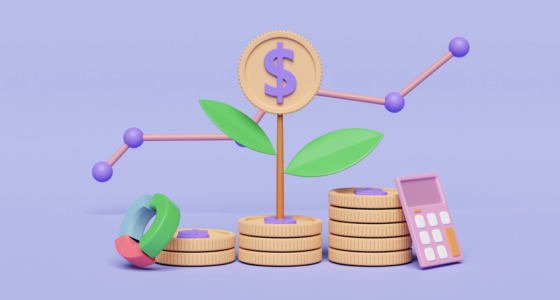

To be successful in financial markets, you should know how they work. Numerous mechanics allow investors and traders to benefit from asset price movements.
Fixed Time Trade (FTT)
An FTT or Fixed Time Trade stands for a type of trading that is based on a trader’s forecast on whether an asset’s price will increase or decrease over a certain period. An asset can be any financial instrument, including currencies, commodities, stocks, and indices.
FTTs can be short- and long-term. Short-term trades expire in less than five minutes, while long-term trades close within 60 minutes.
With fixed-time trades, you need to calculate the value of a trade and forecast the price direction from the current level. If the prediction is correct, you will receive the amount invested plus a bonus. If the projection is wrong, you will lose the deposited amount.
Although FTTs include risks, potential losses are always predetermined. You can’t lose more than you deposited.
CFD
A CFD or contract for difference is a common term for traders. It is an agreement between a trader/investor and a trading platform to exchange the difference in the value of a financial instrument between the contract’s opening and closure.
CFD allows you to trade numerous financial instruments, including stocks, stock indices, and cryptocurrencies. It means that an investor doesn’t purchase and own the underlying asset but only benefits from its price movements. The idea is to predict the price direction of an asset (whether the price will rise or fall) correctly. If the forecast is correct, an investor gets profit.
The CFD value doesn’t take into account the value of the underlying instrument; it considers only the change in the price between the trade’s opening and closure.
Pros
CFD has numerous advantages.
- Simple and Accessible. To open a CFD trade, you only need to choose a trading platform and open an account. Usually, it takes around 10 minutes. The account will be available from your computer and smartphone at any time.
- Numerous Financial Markets. CFD allows trading instruments of all major financial markets.
- High Leverage. CFD trading offers high leverage. But remember that leverage always bears higher risks. Therefore, it’s recommended for professional traders and investors only.
- Common Technique. When trading CFD instruments, you can use common order types, including stops, limits, and contingent orders.
Cons
The pitfalls of CFD trading are basic for those who have ever traded.
- Volatility and Price Gaps. As CFD allows you to trade financial instruments with differing levels of volatility, you may face increased volatility and price gaps. Gapping is a market condition when an asset’s price moves from one level to another without passing through the level in between. Increased volatility and price gaps may lead to your trades executing at unfavourable prices.
- Constant Market Monitoring. Increased volatility may lead to the automatic closure of your trades if you don’t have funds to cover the losses caused by large price fluctuations. Therefore, you should monitor the market constantly.
Forex
Forex (FX) stands for the foreign exchange market. You can exchange one currency for another in this marketplace. On Forex, currencies are traded against each other in a pair. For example, GBP/USD is a currency pair for trading the British pound against the US dollar. On Forex, you need to sell one currency to buy another. Your trade is successful if the currency you bought rises in value against the currency you sold.
Forex is represented by the spot (cash) and derivatives markets. The derivatives market provides forwards, futures, and currency swaps. When people say the FX market, they usually mean the spot market. The forwards and futures markets are mostly visited by companies to hedge their foreign exchange risks.
- The spot market is a marketplace where traders can buy and sell currencies based on their trading price. The price depends on the supply and demand factor as well as current interest rates, economic and political issues, and the forecast on the future performance of one currency against another.
- The forwards and futures markets don’t provide trading of actual currencies. These markets deal in contracts. Contracts have requirements about a certain currency type, a specific price, and a settlement date.
There is no physical building that operates as a trading venue for the foreign exchange market. Operations are done through trading terminals and computer networks.
The key market participants are institutions, investment and commercial banks, and retail investors.

Shares
The stock market is a marketplace where investors can purchase and sell stocks that provide ownership of a share in a publicly-traded company. If you own a company’s share, you can be granted voting rights, capital gains, and dividends.
The market operates via a network of the world’s stock exchanges. Companies hold IPOs (initial public offerings) to raise funds. As a result, they list shares of their stock on an exchange. Investors buy those stocks to get a share of the company.
Investors can purchase and sell stocks. The exchange tracks the supply and demand of each asset, which helps to define its price. To purchase and sell equities, an investor should create a brokerage account. The platform will show you bid and ask prices. Bid stands for a price at which you can buy. Ask is a price at which you can sell.
Key takeaway
Before you start investing or trading, you should know how financial markets operate. Otherwise, you increase investment risks that already exist in any market. By knowing the mechanics, you increase the chance of succeeding in your investment decisions.






